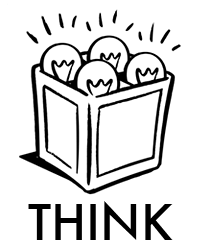 By: Devin Byrka
By: Devin Byrka
Standardized testing is the product of an education system built on the infrastructure of the Industrial Revolution, in which the public was given a basic education in order to be prepared for a life of following orders. This repetitiveness could be found in factories all over the world, and more recently, in the cubicle-filled office spaces. But that has changed. In the 21st century, the idea of the workplace is radically different from what it was even 10 years ago. And as workplaces change, so too must educational institutions, particularly in how they assess and evaluate students.
Recently, there has been a shift in the way in which educators are choosing to evaluate students — choosing to assess how students accomplished something, rather than measuring what they accomplished or what they remembered. The process is more important than the content — the process is the content. Marshall McLuhan knew it all along when he said, “The medium is the message.”
Neil Postman, a disciple of McLuhan and perhaps the more colloquial mouthpiece for McLuhan’s ideas, wrote in 1968 that standardized examinations “devalue, even denigrate the uniqueness of each learner’s perceptions.” We are all different — we have different backgrounds, different learning styles, and different interests; therefore, we should not be receiving a one-size-fits-all method of teaching.
In the early 1980s, of the need for innovation and personalized learning in our schools. Asimov wrote that “what was good enough for the 19th century and even the 20th is no longer good enough for the 21st” and that “the teaching of children in groups, according to a fixed curriculum, does not allow for the great differences from child to child and is therefore a most inefficient form of education.”
How can we improve efficiency? What would learning look like in a system with no standardized tests, no groups of children, and no fixed curriculums? It would probably look a lot like the internet. In 2010, John Seely Brown and Douglas Thomas, who have been labeled “the John Dewey of the digital age”, wrote in A New Culture of Learning that when we want to learn something new on the internet, we are able to do so at our own pace, in our own direction, and that “there is no public influencing of private minds. Yet learning happens all the time.”
One way of grading a student in a system of inquiry would be to assess the quality of the student’s questions. Brown has said that 21st century abilities will include how well you are able to innovate, where “the skills that will help you prosper will be based around a questing disposition.” The method of inquiry can take many forms. For example, we could give a student a choice of topics, letting them choose the questions they want to research about a person, idea, period of history, website, or piece of technology, and then have them perform real, meaningful tasks which actual workers of a particular discipline would undertake. Better questions yield better projects and thus, better grades. This would allow students to absorb material and retain it much more naturally than if we forced them to memorize by rote, only to be have them regurgitate information in the form of answers on a test at the end of the section.
Whatever you want to call the early 21st century — the information age, the digital age, or as Marshall McLuhan preferred, the electric age — we are coming to realize that the internet is radically transforming what it means to learn. Information is at our fingertips – how and what we learn now is radically different from 20 years ago – new discoveries occur on a daily basis, and computers can do complex calculations for us. Our collective intelligence and external memory has been enlarged, extended, and networked, freeing up our minds for more creative tasks, like coming up with good questions to ask, for starters.
Devin Byrka: I”m interested in the paradigm shifts we”re experiencing as we transition from an industrial to a digital age. Just as the printing press brought us from an agrarian to an industrial culture, the Internet is rapidly bringing us into a new age that is digital, networked, and instantaneous. We”re seeing radical changes in all forms of fields and industries, and it seems as if the policymakers at the top often just don”t get it. I believe that real change happens from the bottom up, through the solid foundation of an educated populace. I studied Astronomy and Business in my undergraduate years, and have recently completed my second degree, a Bachelor of Education. I”m a scientist at heart, an avid reader, and like all Canadians, a lover of all things hockey. Personal blog: http://devinbyrka.com
